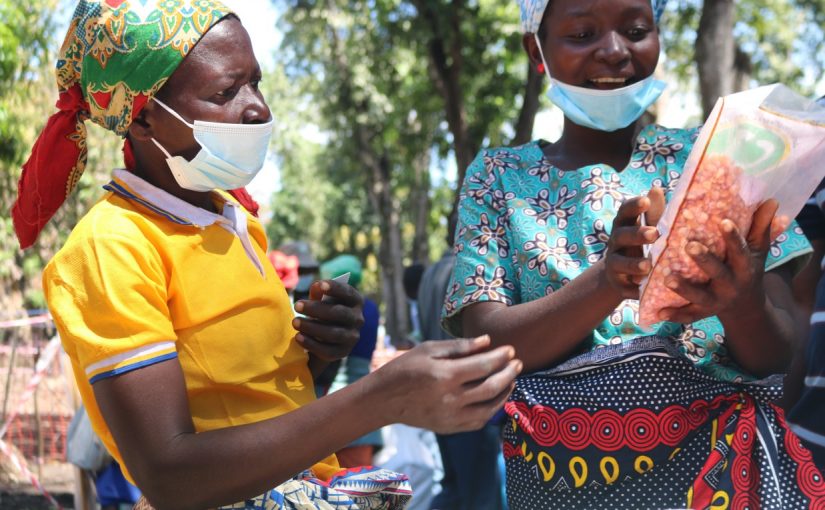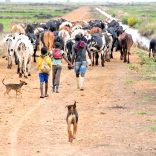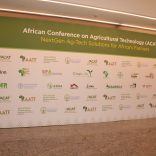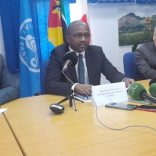Mozambique: Chimoio hosts Roots and Tubers Festival
USAID Mozambique launches programs to support small farmers in Gaza

FLE - Farmers shop for seeds and supplies at a USAID-supported Input, Trade and Technology fair. [File photo: iDE Mozambique]
The U.S. Government, through the United States Agency for International Development (USAID), launched two programs to improve Mozambican farmers’ ability to respond to and recover from climate shocks and stresses. The two-year programs, in coordination with local and provincial government authorities, will improve agricultural productivity, diversify economic opportunities, and strengthen early warning and action systems in disaster-affected, climate-stressed communities of Gaza Province. The programs emphasize women and youth farmers, two groups who often have less access to agricultural resources and services.
The first program, the Farmer Resilience and Rebuilding Initiative, supports 4,400 smallholder farmers in Gaza’s Chokwe and Guija districts by running field schools for farmers with a curriculum tailored to local context, and creating a network of rural entrepreneurs that advise farmers on topics ranging from business management to the use of water-smart technologies. Additionally, the training stresses the importance of how shared responsibilities and decision-making between women and men can increase incomes. The program, implemented by iDE, also develops voucher-based seed and technology fairs to better link remote farmers with agro-dealers.
Separately, the Promoting Resilience through the Empowerment of Women Initiative, implemented by Save The Children, provides training to farmers in sustainable production practices that enrich the soil, protect crops and improve the quality and amount of yields. The program also supports village-based savings and loan groups to increase smallholder farmers’ access to financing. In addition, the program works with district officials and community leaders to develop early action plans that protect crops, fields and livestock before disasters hit. These activities will benefit approximately 75 communities in Gaza province, reaching more than 54,000 Mozambicans.
USAID Mozambique Mission Director Helen Pataki said, “By helping build skills, diversify economic opportunities, and increase access to resources, these programs allow farmers and their communities to not only recover from lean periods, but also improve yields and prepare for the future.”
USAID is investing $5.5 million in these two programs over the next two years. Support for disaster recovery and resilience programs aimed at meeting immediate needs of affected communities and building resilience for future emergencies are critical components of the broader U.S. Government assistance in Mozambique. In close collaboration with the Government of the Republic of Mozambique, the U.S. Government provides more than $500 million in annual assistance to improve the quality of education and healthcare, promote economic prosperity, and support the overall development of the nation.
The United States Agency for International Development (USAID) leads the U.S. Government’s international development and disaster assistance through partnerships and investments that save lives, reduce poverty, strengthen democratic governance, and help people emerge from humanitarian crises. For more information about USAID’s work, visit www.usaid.gov.













Leave a Reply
Be the First to Comment!
You must be logged in to post a comment.
You must be logged in to post a comment.